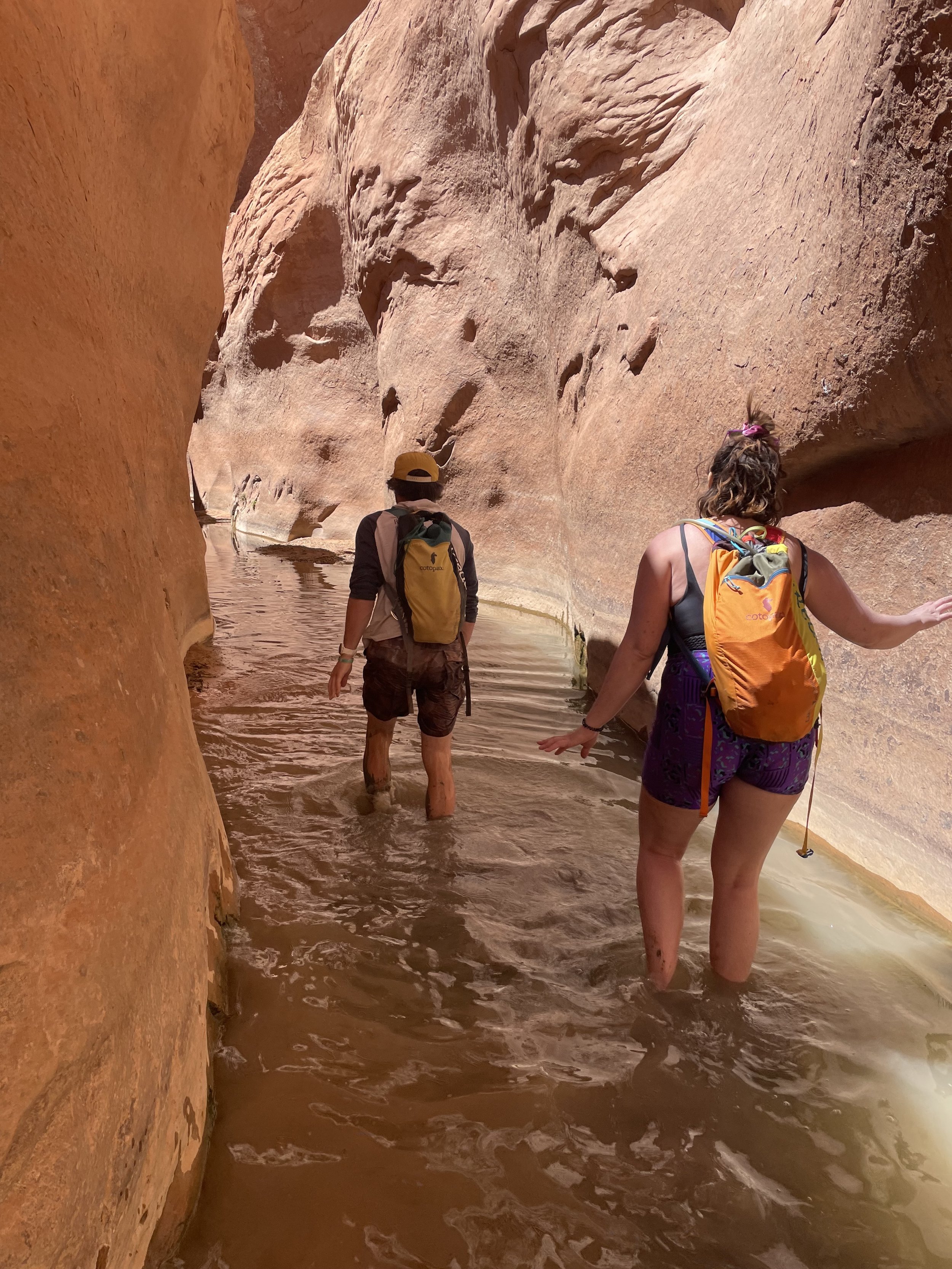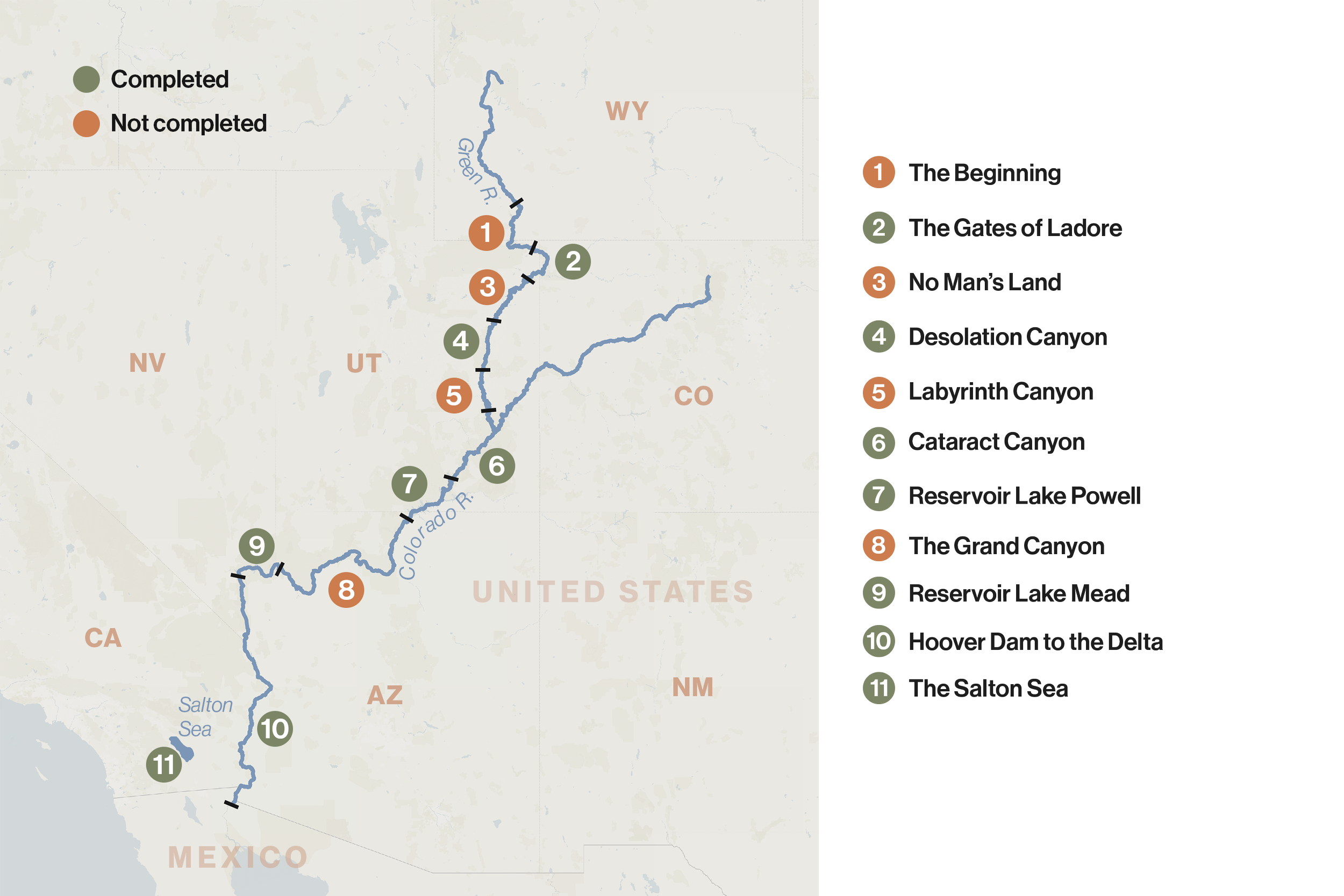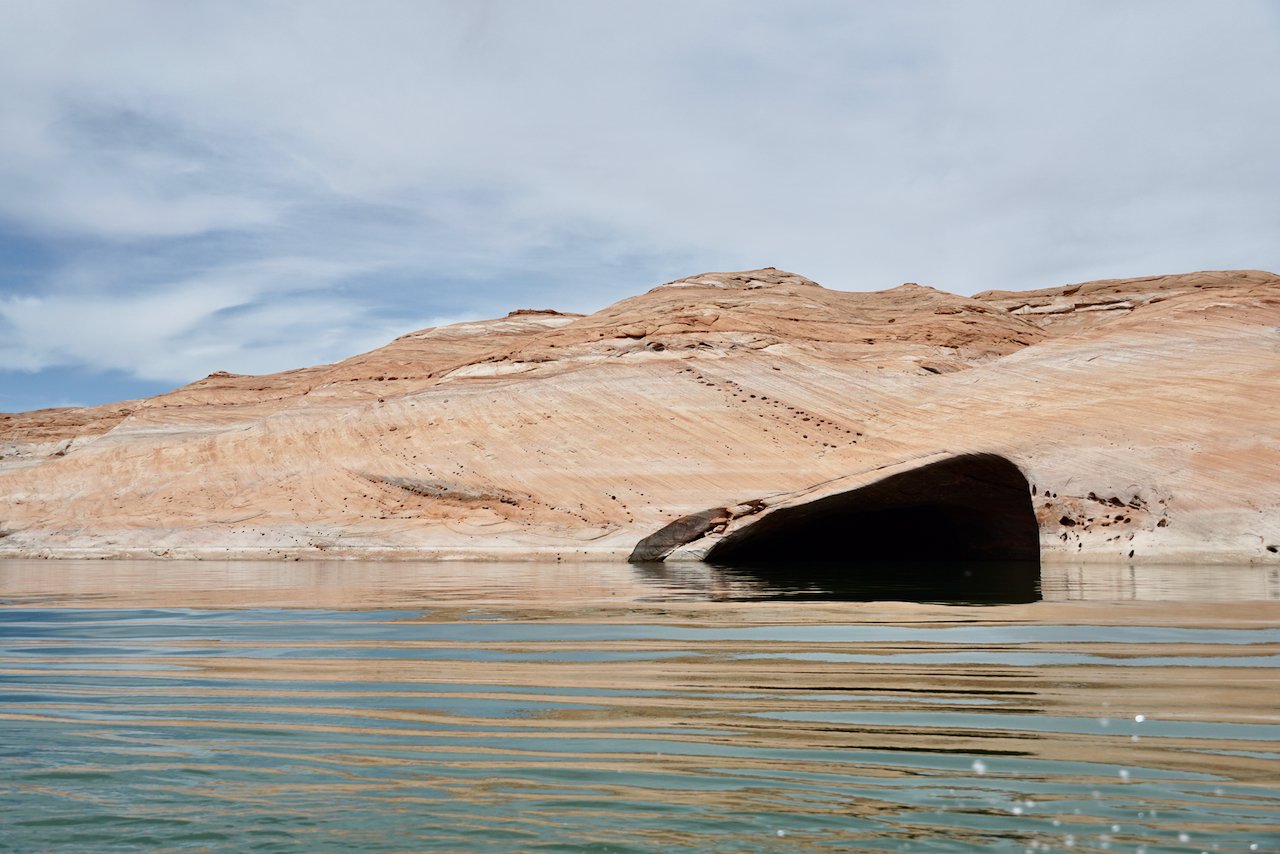The Mirage Story
by Ash Sanders
The Colorado River is perhaps the most important river in the Southwest. 40 million people depend on it for drinking water, recreation, and agricultural irrigation.
(And hey, let’s not forget the more than 150 at-risk non-human species who depend on it, too.) And it is imperiled.
The Colorado River, the river that shaped my Utah childhood, is drying up.
40 million people count on this river. So do cottonwoods and fish, bears and birds.
In college, I rafted its rapids and camped on its shores. For 5 million years, this river ran wild from the Rocky Mountains all the way to Mexico. Now — thanks to dams, climate change, and overuse — it chokes in the sand miles before it reaches the sea. Water levels at Lake Mead have fallen so low that the Hoover Dam could stop functioning.
Farmers in the Imperial Valley — the country’s winter vegetable basket — are being paid to fallow their fields. States are locked in legal battles over the last drops, while indigenous leaders are denied water rights and a seat at the table.
The city I was raised in might run out of water. The river I love might cease to exist.
Image: NPS
This denial isn’t new. The American West was built on the illusion of water.
When white settlers came to the Southwest, they found most desert. But settlement boosters painted a different picture of endless abundance—that rain would follow the plow. These people looked at the desert and saw what they wanted to see. They saw water. They saw a mirage.
John Wesley Powell tried to intervene. The first white man to explore the Colorado River, Powell took a team of ragtag men into one of the last unmapped areas in the Lower 48. After months of battling rapids, hunger, cold and terror, he emerged a hero.
However, Powell had an unwelcome message for the American people — there wasn’t enough water for large-scale settlement of the West. The land could not support the illusions people had about it. Instead of spinning fantasies, Powell warned, we needed to accept limits and trust the science.
Gripped by Manifest Destiny, settlers ignored him. They built the West on a mirage, on a blank check promising endless water.
Tens of millions of people depend on that blank check — and now it's coming due.
This story is about the concept of mirage — and the allure of illusions on a collapsing planet.
These days, we might laugh at the idea of rain following the plow. But most of us are locked in the same kind of thinking. We know the climate crisis is happening, just as we know that the Colorado River is drying up.
Most people know these facts, but most of us believe, deep down, that we'll pull some water out of a hat.
Dawn Kish
To find answers to these questions, I knew I needed to go to the river.
So I grabbed my best friend Abigail, and we headed west. We’ve spent the last 18 months rafting down the Green and Colorado Rivers from Wyoming to the Gulf of California. We're doing this to bear witness to the end of a river, and in many ways, to try to face the end of the world.
But more importantly, we're trying to understand if there's a way out of the mirage — to pierce the illusion and fight for what’s left.

We’re talking to people who are caught up in the fate of the Colorado River and are trying to decide what to do about it.
In this podcast, we’ll spend time with river guides who are mapping the return of a river canyon once considered lost — and learning about the surprising resilience of nature after environmental catastrophe.
We’ll talking to a man who got sober to fight for the river and bring down one of the most controversial dams in the world.
We'll talk to Native American tribes fighting for water rights denied them by racist water policy — and trying to decide how to manage them as the river dries up.
We’ll visit craps tables in Vegas to learn how politicians gamble with our water, and have traveled to a tiki hut next to a man-made lake under a reconstructed London Bridge in the middle of a desert.
We’ll go to an apocalyptic art party in a town filled with anarchists, artists and self-described Martians as they grapple with whether to stay or retreat from the shores of a dying lake.
And we'll visit some visionary environmental advocates using groundbreaking treaties and organizing tactics to bring the delta back from the dead.

Mirage is your apocalypse guide to the Colorado River—and to the apocalypse itself.
As we raft a disappearing river from start to finish, we'll ask: How does it feel to be alive in a time of collapse? Can you unmake the mistakes of the past? And what does it look like to build a new world out of the old?



